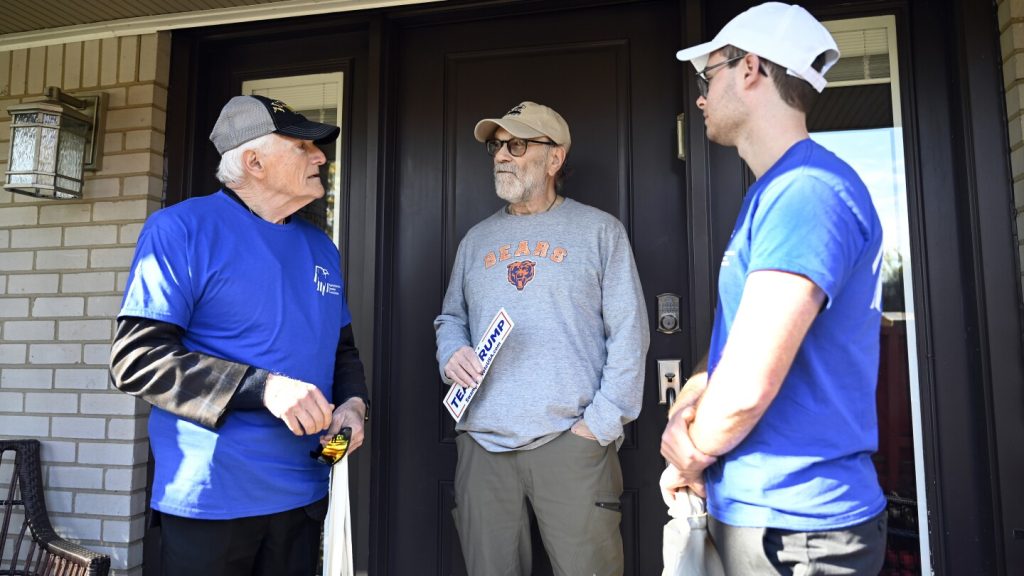The Republican Jewish Coalition is making a concerted effort to target Jewish voters, with a particular focus on battleground states like Michigan, Arizona, Georgia, Nevada, and Pennsylvania. In Michigan, they have identified around 15,000 new Jewish Republican voters, out of roughly 120,000 Jewish voters in the state, that could potentially make an impact in the upcoming election. This effort includes door-to-door outreach, social media campaigns, and targeted advertising aimed at peeling off Democratic Jewish voters and turning them towards supporting President Donald Trump. The $15 million investment includes $5 million specifically designated for door-to-door canvassing and voter data analysis to efficiently identify potential Trump supporters.
Despite efforts by the Republican Jewish Coalition, Jewish voters have historically leaned towards supporting Democratic candidates. In the 2020 election, around 70% of Jewish voters nationally backed Joe Biden, with only 30% supporting Trump. However, as the Israeli-Palestinian conflict continues to intensify and anti-Semitic incidents rise, some Jewish voters, like 72-year-old Rachel Weinberg, who prioritize pro-Israel policies and support for the Jewish state, are more inclined to support Trump. Weinberg emphasized that even though she may not agree with everything Trump says, she sees his actions and vocal support for Israel as crucial in her decision to vote for him.
The competition for Jewish voters in Michigan’s Oakland County is fierce, given its significant Jewish population. In areas like West Bloomfield Township, where canvassers like 82-year-old David Cuttner and 22-year-old Noam Nedivi are working to persuade voters, there is a mix of support for both candidates. Still, with the current political climate and emphasis on the U.S.-Israel relationship, many Jewish voters are reevaluating their allegiances. The influx of new Jewish Republican voters identified by the coalition could potentially sway the election in a state that was won by Biden with a narrow margin in the previous election.
Tensions have been heightened due to the recent conflict between Israel and Hamas, leading to debates and divisions among Jewish voters regarding which candidate offers better support for Israel’s interests. The Jewish Democratic Council of America’s CEO, Halie Soifer, stated that Kamala Harris aligns more closely with the views and values of the majority of American Jews, while Trump’s rhetoric and associations are seen as problematic. Many Jewish voters are concerned about increasing acts of anti-Semitism and anti-Israel sentiment in the U.S., leading to a sense of unease among the community. Such concerns are influencing their decisions in the upcoming election, with some voters prioritizing fighting against threats like fascism over other policy considerations.
As the election approaches, Jewish voters in Michigan and other battleground states find themselves in the spotlight, with both major parties making efforts to secure their support. The Republican Jewish Coalition is investing significant resources in appealing to Jewish voters who prioritize Israel-related issues, while the Jewish Democratic Council of America is emphasizing the importance of Jewish voters in supporting Democratic candidates. The intense focus on the U.S.-Israel relationship and rising anti-Semitic incidents are shaping the political landscape and influencing how Jewish voters are approaching the upcoming election. Ultimately, issues related to Israel, anti-Semitism, and national security are likely to play a significant role in determining the voting preferences of Jewish voters in the 2024 election.


